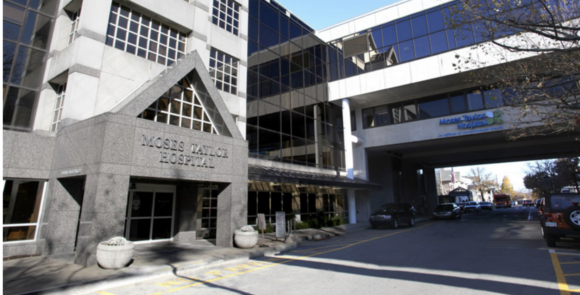A federal appeals court is giving a Pennsylvania hospital another opportunity to have $1.75 million of its medical malpractice insurance coverage restored. The $1.75 million represents the difference between the final arbitrated settlement of $7.75 million and the plaintiff’s earlier demand of $6 million that the hospital claims its insurer should have accepted as a settlement in a birth injury case.
The federal court for the Middle District of Pennsylvania dismissed Moses Taylor Hospital’s complaint after finding that the hospital did not seek actual monetary damages. Rather Moses Taylor sought restoration of its insurance coverage—a form of equitable relief.
However, the Third Circuit Court of Appeals has now vacated the district court’s grant of a motion to dismiss to ProSelect Insurance Co., a division of Coverys, and remanded the case back to the district court to consider whether Moses Taylor’s complaint properly pleads a breach of contract action seeking equitable relief.
The Third Circuit found that the lower court erred in considering only monetary damages and not the requested equitable relief of restoring insurance coverage.
Under Pennsylvania law, a plaintiff bringing a breach of contract claim must plead the existence of a contract, including its essential terms, a breach of the contract; and “resultant damages.” Moses Taylor and the district court understood the term “resultant damages” to prohibit plaintiffs from bringing breach of contract actions seeking equitable relief.
Judge Anthony Scirica of the appeals court found that was a misunderstanding, writing in remanding the case, “This reading is too narrow. Pennsylvania law recognizes both legal and equitable remedies for breach of contract claims.”
Moses Taylor purchased a medical malpractice insurance policy from ProSelect Insurance Co. with a $7.25 million coverage limit applicable to aggregate liability as well as to individual claims. In 2017, the guardian of a patient who suffered catastrophic birth injuries filed a medical malpractice claim against Moses Taylor in state court. The insurer directed Moses Taylor’s legal defense.
According to the hospital’s complaint, ProSelect allegedly failed to send a representative with settlement authority to two conferences. Moses Taylor claims ProSelect then agreed to high-low arbitration because the hospital promised the insurer that it would contribute its own funds of $2,500,000 if the final award was at the “low” limit.
Before presenting evidence to the arbitrator, the patient’s counsel made a final settlement demand of $6,000,000. Moses Taylor alleges it directed ProSelect to accept the demand, or at least engage in settlement discussions, but the insurer did neither.
The arbitrator returned a verdict far above the “high” limit of $7,750,000 which was then reduced to the high limit. ProSelect paid out a portion of this settlement from Moses Taylor’s aggregate insurance, depleting the funds available to cover future liability.
But for ProSelect’s inaction, Moses Taylor contends, the final settlement amount would have been lower and so would have depleted less of Moses Taylor’s aggregate insurance coverage.
Moses Taylor brought a breach of contract claim as well as derivative bad faith and vicarious liability claims in state court. In its complaint, Moses Taylor alleged it suffered “monetary damages in the depletion of the aggregate amount of insurance tail coverage available to it. Rather than requesting that it be paid money, it requested that $1.75 million, the difference between the settlement demand and the final settlement, be restored to its excess insurance policy aggregate as coverage for future claims.
The federal district court, where the case was removed by ProSelect, dismissed Moses Taylor’s complaint for failure to plead actual monetary damages and granted leave to amend. But when Moses Taylor could not produce evidence of pending or future claims likely to exceed its policy limits, the court dismissed its amended complaint with prejudice, again citing failure to plead actual monetary damages.
Moses Taylor appealed. Last week the appeals court remanded the case so that the district court can decide whether equitable relief is available to Moses Taylor.
Judge Scirica noted that Pennsylvania case law suggests compensatory damages for an insurer’s bad faith failure to settle are only appropriate when insureds face liability that exceeds their policy limit. Even if compensatory damages are theoretically available to Moses Taylor, competing statutes of limitations complicate this case—making it more likely any available damages would be inadequate and so requiring “equity’s flexible machinery.”
The court further noted that the statute of limitations on Moses Taylor’s breach of contract claim is four years. But the statute of limitations on personal injury actions, which is two years, does not begin to run for unemancipated minors until they turn eighteen. Even though the policy period for Moses Taylor’s policy ended in 2011, plaintiffs who were treated as infants near the end of the policy period could bring suit in 2028 or even later.
“Reliance on remedies at law creates a catch-22 for Moses Taylor here: sue without waiting for liability that would require use of its aggregate coverage and risk dismissal for failure to plead actual monetary damages or wait for such liability and risk running out the four-year statute of limitations. Either way, Moses Taylor would face the strong possibility that the merits of its bad faith claim would not be heard. Requesting equitable relief—restoration of $1,750,000 to its aggregate coverage—avoids this catch-22,” Judge Scirica wrote.
Photo courtesy of Moses Taylor Hospital.
Was this article valuable?
Here are more articles you may enjoy.


 AIG’s Zaffino: Outcomes From AI Use Went From ‘Aspirational’ to ‘Beyond Expectations’
AIG’s Zaffino: Outcomes From AI Use Went From ‘Aspirational’ to ‘Beyond Expectations’  Bayer to Make $10.5 Billion Push to Settle Roundup Cases
Bayer to Make $10.5 Billion Push to Settle Roundup Cases  Judge Upholds $243M Verdict Against Tesla Over Fatal Autopilot Crash
Judge Upholds $243M Verdict Against Tesla Over Fatal Autopilot Crash  When the Workplace Is Everywhere: The New Reality of Workers’ Comp Claims
When the Workplace Is Everywhere: The New Reality of Workers’ Comp Claims 